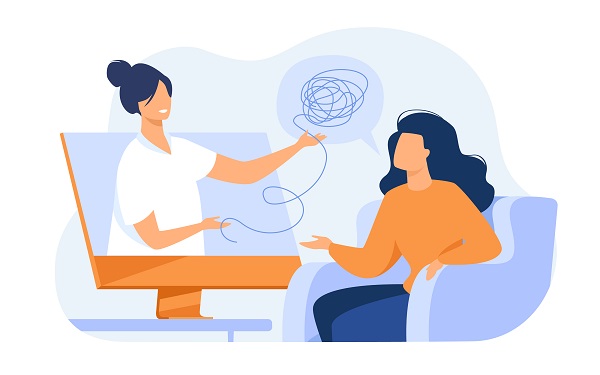Visit a Psychiatrist for Severe Social Phobia

Severe social phobia can be overwhelming, but a psychiatrist can help. When a person suffers from social phobia, it causes a constant and unbearable amount of fear when being around other people and the worry of causing embarrassment to themselves. It can often get to the point of disrupting one's life; however, there are many treatment options from a psychiatrist that are available to help.
What is severe social phobia?
Severe social phobia, more commonly known as social anxiety disorder, is a specific type of anxiety disorder that is categorized by an immense amount of anxiety when present in typical social or performance situations. Those who suffer from this disorder are afraid of being around other people and are excessively worried about others watching or judging them. For many people who experience this phobia, the fear of being around others is so strong it interferes with daily activities and has a negative impact on their lives.
There is a wide spectrum of types of social anxiety; a person with non-generalized anxiety only has social phobia in certain situations, such as speaking in public or attending a large gathering, while someone who suffers from generalized social anxiety is always fearful when around other people and typically tries to avoid most social situations as much as possible. Depression and self-esteem issues often coincide with this disorder.
What are the symptoms of social anxiety disorder?
The typical symptoms of severe social phobia are acute fear when attending social situations and attempts to avoid these situations as often as possible and a worry about being judged or observed. Those who suffer from social phobia worry excessively and intensely over how others perceive them. Physical symptoms include sweating, shaking, nausea, rapid heartbeat and trouble focusing.
What treatments can a psychiatrist provide?
Fortunately for sufferers, a variety of treatment options exist. Medications, such as antidepressants known as selective serotonin reuptake inhibitors, are among the most common treatments. There are also a number of therapies available.
Cognitive-behavioral therapy and exposure therapy are two often successful options. CBT is done by training the brain with a new positive perspective to replace the previous negative thoughts and actions that the brain was previously conditioned to react to. Exposure therapy involves slowly exposing patients to the social situations that cause anxiety and teaching techniques to manage and control the fear.
These treatments can take weeks or months, but patients often begin to feel and act differently in the social situations that previously made them anxious. Medication and therapy are frequently combined for even better results.
Conclusion
Severe social phobia can be stressful and extremely difficult to live with. Psychiatrists can offer many different treatment options, including medications and different types of behavior and exposure therapies to help patients confront anxiety directly and learn coping mechanisms when dealing with social situations that induce panic. Those with such anxiety do not have to suffer in silence and can begin to function normally again with appropriate psychiatric care.
Request an appointment here: https://www.hopetmsofny.com or call Hope TMS and Neuropsychiatric Center at (646) 578-8152 for an appointment in our New York office.
Check out what others are saying about our services on Yelp: Psychiatrist in New York, NY.
Recent Posts
Relationship obsessive-compulsive disorder (ROCD) is a distinct subtype of OCD that can cause persistent doubts and distressing thoughts about romantic relationships. OCD treatment can help individuals manage their intrusive thoughts and compulsive behaviors associated with ROCD. Understanding and having access to the available treatment options can help individuals regain control over their thoughts and the…
Smoking cessation is one of the best things a person can do for their health. Still, despite the ill health effects of smoking and the clear benefits of quitting, many people find it nearly impossible to quit on their own. If you are finding it hard to quit, gain insight into why you may be…
Transcranial magnetic stimulation (TMS) is a cutting-edge treatment that offers hope for people dealing with depression and anxiety, especially those who have not found relief with medication or therapy. TMS is a non-invasive procedure that uses magnetic fields to stimulate specific areas of the brain involved in mood regulation. This innovative approach is helping many…
Everyone experiences occasional anxiety, but an anxiety disorder involves persistent, excessive worry and physical symptoms that can disrupt daily routines, relationships, and overall well-being. If left untreated, these symptoms can intensify, impacting mental and physical health. Seeking help from a psychiatrist can be a significant first step toward effectively managing anxiety disorder symptoms and getting…


